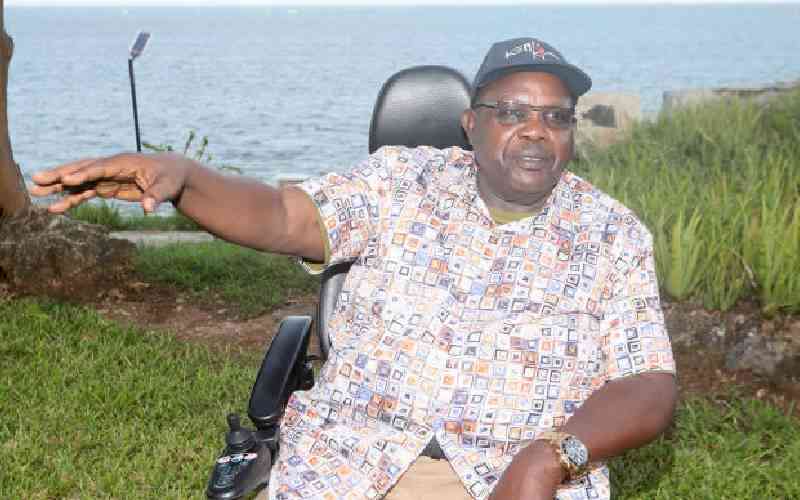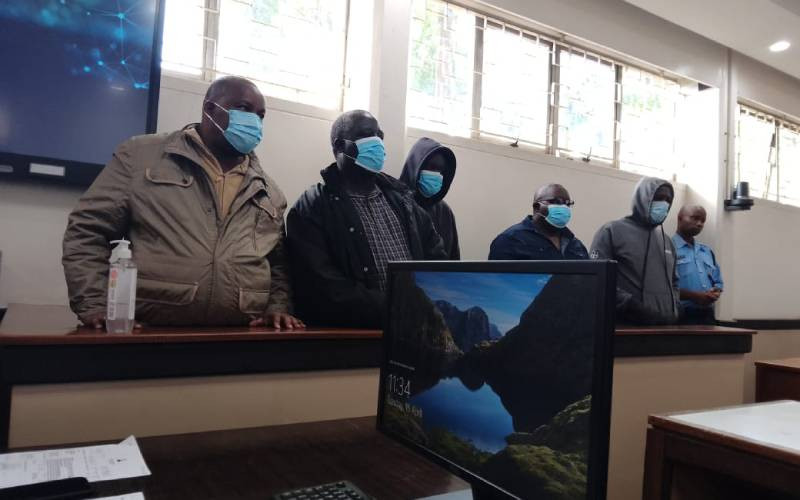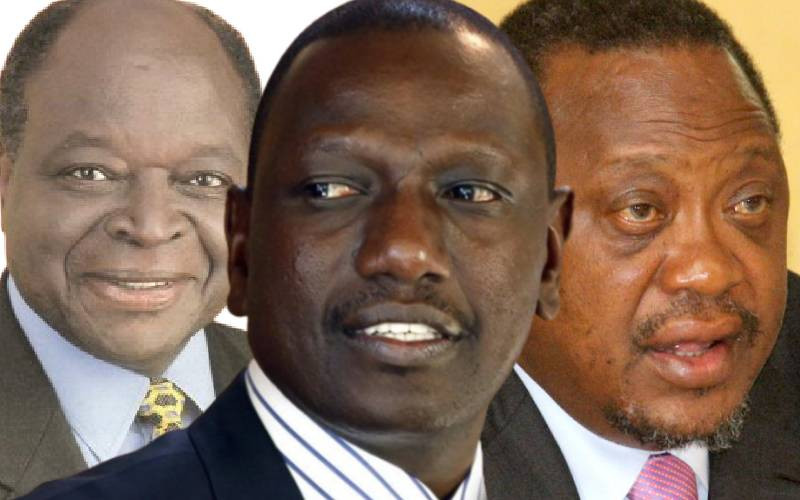In the last two weeks, this column has discussed the politics of the Judiciary, on the occasion of the audacious decision by the Director of Public Prosecutions to charge Deputy Chief Justice Philomena Mwilu, with corruption-related offences.
The intention is to clarify the context within which the decision to arrest the Deputy Chief has been made and the unseen interests.
The choice of David Maraga as Chief Justice, after the retirement of Willy Mutunga, surprised many people as he was not widely regarded as a strong candidate.
Although he did well in the interviews, and while his large image made US-based academic Makau Mutua a memorable candidate, it was always clear that he was too much of an outsider to the Judiciary and to the country’s political establishment to have been a strong contender.
Previously seen as a weak candidate, a strong performance during the interview suddenly thrust Supreme Court Judge Smokin Wanjala into contention but he too failed. While his candidature was blighted by an unwelcome media controversy, Court of Appeal judge Alnashir Visram was seen as the establishment candidate.
In giving the position to Maraga, the JSC had to overcome strong political pressure to install an establishment favourite as the next Chief Justice.
The choice of Maraga signified that a candidate other than the one favoured by the establishment had become the Chief Justice and, second, that in a matter in which the political establishment was so heavily invested, the JSC had still found the room to make an independent choice.
Further, because Maraga owed his selection to the JSC rather than the establishment, he arrived in office free of any expectations from, but saddled with the suspicion of, the political establishment. For the establishment, the lesson from the selection of Maraga as Chief Justice was that it did not have the influence to ensure that the JSC gave heed to its wishes. The logical result of this lesson has been a pre-occupation to get some control over the JSC.
The decision of the Supreme Court that annulled the presidential election results last year would not have been possible with a pliant Chief Justice. Maraga only managed to have the decisional independence because he was a product of the JSC, and not of the establishment. The Supreme Court decision would have further emphasised the need for the establishment to find more leverage over the JSC and, through it, theJjudiciary. Appellate judge Paul Kariuki was an unsuccessful candidate for Chief Justice when Mutunga retired. He was perceived as an establishment candidate, a possible alternative to Visram. After the elections last year, Kariuki was appointed Attorney General when Githu Muigai resigned from this position.
As president of the Court of Appeal before his current position, Kariuki was a Judiciary insider and played a leading role in the internal politics of the institution. As a candidate for Chief Justice, Kariuki competed against Maraga, who went on to get the position, and faced the same JSC that he must now join as part of his current job.
Own place
Kariuki has aggravated the controversy surrounding the re-election of Justice Mohammed Warsame to the JSC, by refusing to take his own place in the JSC until presidential appointees to the JSC are sworn in.
At one level, his choice is a continuation of the politics of the judiciary that Kariuki has been part of. At another, while he would like to be viewed as playing a more removed role in this controversy, Kariuki is leveraging his exalted position as Attorney General to get back at an institution he was once part of.
In addition to her role as Deputy Chief Justice, Mwilu is also a member of the JSC representing the Supreme Court.
Her election to the JSC, in place of Wanjala, was keenly contested. As the only other woman in the court and based on gender considerations, Justice Njoki Ndungu might have been the alternative.
Stay informed. Subscribe to our newsletter
If Mwilu is forced out as a result of the case she faces in court, there will not only be a vacancy in the Supreme Court but also in the JSC.
If the establishment has its way in how any such vacancies are filled, this would go a long way towards strengthening its position in the judiciary. Ndungu, viewed as a leaning towards the establishment, would be a natural contender for the JSC position and possibly also for the position of Deputy Chief Justice.
With transitions within the judiciary where key positions will fall vacant in the next four years, even as political transitions also take place, more control over the JSC is attractive. Even if this does not happen, removing Mwilu from the judiciary might be attractive enough.
In public, the troubles visited on Mwilu have been positioned as a simple act of law enforcement bereft of extraneous considerations. However, all the players involved understand the fact what she is facing has the implications discussed here.
- The writer is Executive Director KHRC. [email protected]
 The Standard Group Plc is a
multi-media organization with investments in media platforms spanning newspaper
print operations, television, radio broadcasting, digital and online services. The
Standard Group is recognized as a leading multi-media house in Kenya with a key
influence in matters of national and international interest.
The Standard Group Plc is a
multi-media organization with investments in media platforms spanning newspaper
print operations, television, radio broadcasting, digital and online services. The
Standard Group is recognized as a leading multi-media house in Kenya with a key
influence in matters of national and international interest.
 The Standard Group Plc is a
multi-media organization with investments in media platforms spanning newspaper
print operations, television, radio broadcasting, digital and online services. The
Standard Group is recognized as a leading multi-media house in Kenya with a key
influence in matters of national and international interest.
The Standard Group Plc is a
multi-media organization with investments in media platforms spanning newspaper
print operations, television, radio broadcasting, digital and online services. The
Standard Group is recognized as a leading multi-media house in Kenya with a key
influence in matters of national and international interest.







